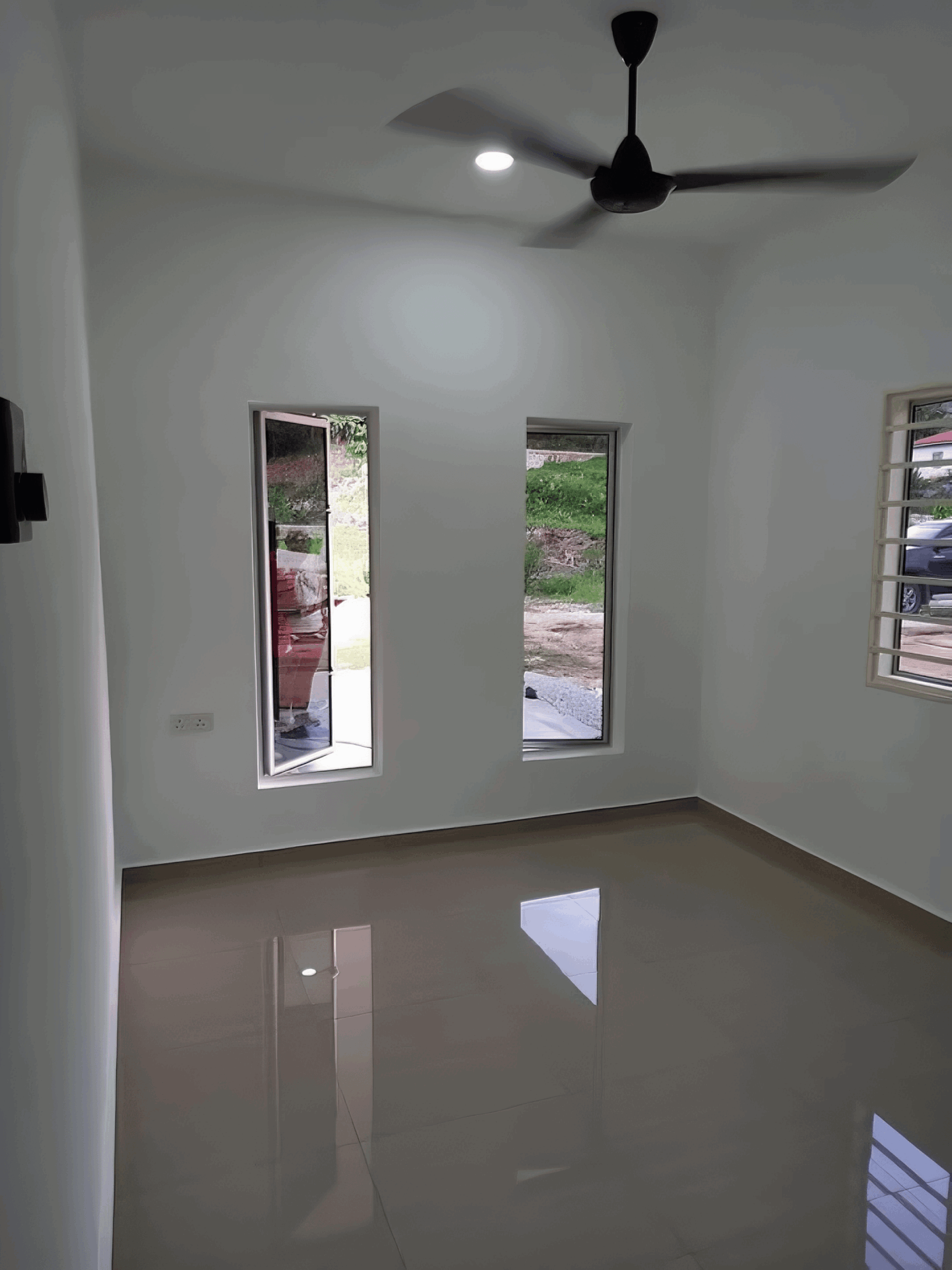
Blog
How to Spot a Shady Contractor from a Mile Away – Don’t Get Scammed! | RumahHQ

Hey there, homeowners! We all know that renovating or building our dream space can be as exciting as it is daunting. But let’s face it—when it comes to hiring a contractor, it can feel like you’re about to enter a minefield of potential scams. Whether you’re planning a cozy kitchen revamp or constructing a sleek new extension, not every contractor has your best interests at heart. In Malaysia, where the construction scene is buzzing, it’s crucial to be savvy and spot the red flags before you hand over your hard-earned cash. So, how do you differentiate between the pros and the shady players? In this article, we’ll share some handy tips to help you quickly identify a dodgy contractor from a mile away, keeping your project on track and your wallet safe. Let’s dive in and arm ourselves with the know-how to avoid those troublesome traps!
Identifying Red Flags Before You Sign the Dotted Line
Engaging a contractor for your home improvement projects can feel like entering a maze, but spotting the warning signs can save you from a tangled mess. Look out for contractors who don’t have a physical address or a verified phone number. If their website feels like it was thrown together last minute and lacks professional touches, you’re likely dealing with someone who isn’t serious about their business. Here are some additional indicators of trouble:
- No References: A reliable contractor should be able to provide testimonials or previous work examples. If they can’t, that’s a giant red flag.
- Pressure Tactics: Beware of contractors who try to rush your decision. If they’re saying, “Sign today for a discount,” it’s often a tactic to trap you.
- Lack of Transparency: If your contractor isn’t open about what they’re doing and the costs involved, it’s time to reconsider.
Another way to sniff out a potential scam is to take a close look at their contract. A trustworthy contractor should provide a detailed, written agreement that covers all aspects of the project. If you see vague terms or things that feel off, don’t ignore your gut feeling. Take a peek at what your contract should include:
| Contract Essentials | Why It Matters |
|---|---|
| Scope of Work | Details what the project entails, making expectations clear. |
| Timeline | Specifies start and completion dates, helping you track progress. |
| Payment Schedule | Outlines when and how much you’ll pay, avoiding sudden surprises. |
Lastly, trust your instincts. If something feels wrong, chances are it is. Never hesitate to seek a second opinion, especially if you’re unsure about a contractor’s offers or terms. Checking with others who have had similar work done can also provide insights and uncover red flags you might have missed initially. Remember, it’s your home and your investment—don’t rush into anything that could lead to a regrettable decision!

Understanding the Importance of a Detailed Written Estimate
When it comes to hiring a contractor, having a detailed written estimate isn’t just a bunch of legal mumbo jumbo — it’s your safety net. Think of it as a detailed roadmap guiding you through the maze of home improvements or repairs. A comprehensive estimate should break down every cost, from materials to labor, ensuring you know exactly where your money is going. Without this clarity, you risk opening the door to unexpected expenses that could leave your budget in tatters.
A solid estimate also serves as a legal document that can help protect your rights as a homeowner. If a contractor tries to charge you more than what was agreed upon, you have concrete evidence to back up your claims. Be on the lookout for estimates that include vague descriptions or lacking important details; these are often red flags indicating a contractor who might not have your best interests at heart. Always ask for clarification and don’t be afraid to challenge anything that seems off.
Moreover, a detailed estimate reflects a contractor’s professionalism and transparency. Reputable contractors take the time to put together a complete package that shows they are serious about their work. If you notice inconsistencies or a lack of detail, consider this a warning sign. Here are a few essential elements that should be included in a thorough estimate:
| Item | Description | Estimated Cost |
|---|---|---|
| Materials | List of materials and brands | RMXXXX |
| Labor | Total hours and rate | RMXXXX |
| Permits | Necessary permits if applicable | RMXXXX |
| Contingency | Potential unexpected costs | RMXXXX |

Checking Credentials and Licenses: What You Need to Know
Before you even think about hiring a contractor, it’s crucial to check their credentials and licenses. Not all contractors are created equal, and some might not even have the proper training to do the job right. Look out for these vital documents:
- Business License: Ensure they’re registered to operate legally in your state.
- Specialty Licenses: Depending on the job, confirm they have the right certifications for specific tasks, like plumbing or electrical work.
- Insurance: Protect yourself by verifying they have liability and workers’ compensation insurance.
It’s not enough just to ask for these documents; you should take the extra step to verify them. Most licensing boards have online databases where you can check a contractor’s status. Here’s a simple checklist to guide you:
| Document | Verification Method |
|---|---|
| Business License | Check local government website |
| Specialty Licenses | Consult relevant trade associations |
| Insurance Certificates | Request direct proof from the contractor |
If they seem hesitant or unable to provide these documents, that’s a major red flag! A reputable contractor will have no issues showing you their credentials. Also, don’t forget to look up online reviews and ask for references. Speak to past clients to get a real sense of the contractor’s reliability and work quality. This added layer of due diligence can save you from future headaches and expenses, ensuring you find a trustworthy professional.

Online Reviews and Testimonials: Separating Fact from Fiction
When browsing through online reviews, it’s essential to approach them with a healthy dose of skepticism. Not all testimonials carry the same weight, and some could be downright misleading. Start by looking for reviews that are detailed and specific. A glowing review that simply states, “This contractor is amazing!” offers little insight. Instead, look for comments mentioning particular aspects of the work, like adherence to deadlines, attention to detail, or professionalism. These specific details can help you gauge whether the reviewer is genuinely satisfied or if they might be part of a fake review campaign.
Another red flag to watch out for is the imbalance of reviews. If a contractor has dozens of five-star reviews piled up in a short period, it could be a signal of manufactured feedback. Check multiple platforms to see if the contractor’s reputation holds true across various sites. For instance, a contractor might shine on their own website but fall flat on independent review platforms. Consider the percentage of positive versus negative reviews, as this can provide a clearer picture of their overall performance.
Lastly, don’t be afraid to seek out third-party validation. Websites that curate reviews can be more trustworthy, as they minimize potential bias. For your convenience, here’s a simple comparison of common review platforms:
| Platform | Strengths | Weaknesses |
|---|---|---|
| Google Reviews | Wide reach, real user feedback | Can be manipulated with fake profiles |
| Engaged community ratings | Potential bias from friend influence | |
| Yelp | Moderation for authenticity | Limited in certain regions |
By keeping these considerations in mind, you’ll be better equipped to separate reliable contractors from those who could end up costing you more than just money. Always remember, thorough research is your best defense against scams!

The Importance of Transparency in Communication
In any business relationship, especially in contracting, a clear line of communication can make all the difference. When a contractor is open about their processes and pricing, it not only builds trust but also protects you from potential misunderstandings. Look out for contractors who are eager to explain their methods and answer your questions—this is a positive sign that they value transparency. A straightforward approach can often mean fewer surprises down the road.
Moreover, transparency is key when it comes to pricing and project timelines. Be wary of contractors who provide vague estimates or are elusive about their fees. A reputable contractor should offer you a detailed breakdown of costs, including materials and labor. Here’s what to keep an eye on:
- Clear and itemized quotes
- Written contracts that outline every detail
- Open communication regarding project changes and delays
To further illustrate this concept, here’s a simple comparison of transparent versus non-transparent contractors:
| Transparent Contractor | Non-Transparent Contractor |
|---|---|
| Provides a detailed project outline | Gives a vague description |
| Communicates potential problems proactively | Waits until issues arise |
| Offers multiple payment options | Insists on cash-only payments |
Ultimately, clarity in communication not only enhances the working relationship but also reduces the risks of being scammed. When you’re hiring a contractor, it’s crucial to ensure that they foster an open dialogue and provide all necessary information upfront. This approach will help you identify potential red flags and maintain control of your project every step of the way.

Recognizing Unusual Payment Demands and Structures
When dealing with contractors, it’s essential to keep your eyes peeled for any payment demands that raise a red flag. A trustworthy contractor will provide a clear payment structure, typically broken down into stages that reflect the completion of specific tasks. However, if you encounter requests for large upfront payments or full payments before any work has commenced, that’s a strong indication you might be dealing with someone who’s not quite right. Typical warning signs include:
- Requests for a huge deposit: More than 20-30% upfront can be excessive.
- Cash-only deals: Avoid cash transactions; they are harder to trace.
- No written contract: If they refuse to put terms in writing, walk away.
Another tactic used by shady contractors is presenting unusual payment structures that don’t align with industry standards. For instance, they might suggest bizarre financing terms that seem too good to be true. It’s crucial to compare their proposals against typical contractor contracts to spot inconsistencies. Always be wary of:
| Strange Payment Terms | Why It’s Suspicious |
|---|---|
| Paying by credit card but with high fees | They might want to pocket the extra fees. |
| Payments through untraceable apps | These methods can hide their footprint. |
| Asking for full payment before starting | This can often indicate a lack of faith in their own work. |
paying attention to the contractor’s communication style can also help you spot the signs of a potential scam. If they’re vague about the costs, avoid providing details on the scope of work, or are evasive when you ask questions about payment structures, that’s a major red flag. Transparency is key in any contractor-client relationship, and every legitimate contractor should be willing to discuss and clarify financial matters openly. Keep these cues in mind to help protect yourself from becoming a victim.

Trust Your Instincts: The Gut Feeling Factor in Contractor Selection
Choosing the right contractor can sometimes feel like a game of chance, but your instincts often hold the key to discerning between a reputable professional and someone who might just be out to make a fast buck. When you’re juggling bids, timelines, and credentials, take a step back and tune into that gut feeling. If something seems off from the get-go—perhaps a contractor who is overly aggressive in their sales pitch or seems to dodge your questions—don’t brush it aside. Listen to what your intuition is telling you.
Here are some red flags to watch for as you trust your instincts:
- Lack of Transparency: If they are reluctant to provide references or a detailed breakdown of costs, that’s a big warning sign.
- Too Good to Be True Offers: When quotes seem much lower than others, they may be cutting corners somewhere.
- Poor Communication: If they are difficult to reach or slow to respond, this pattern may continue throughout the project.
Remember, your gut feeling is often an aggregation of past experiences, knowledge, and subtle cues that your brain picks up on. If a contractor seems overly confident without the necessary credentials, or if their demeanor makes you uncomfortable—even if they have the best reviews—don’t ignore that unease. In the decision-making process, it’s essential to weigh both the logical facts and those unquantifiable feelings. Ultimately, you deserve to feel secure and at ease with your contractor choice.

Knowing When to Walk Away: Signs Its Time to Cut Ties
Trust your instincts when something feels off during a project. If the contractor continually avoids direct answers, it can be a huge red flag. Pay attention if you notice them:
- Consistently late to meetings
- Making excuses for not providing documents
- Blaming others for delays
These behaviors often indicate a lack of professionalism and commitment. Your time and money are valuable, and a contractor who doesn’t respect that is not worth keeping around.
Another sign that you might need to let go is the absence of clear communication. If your contractor is not keeping you in the loop, consider it a warning signal. Look out for:
- Failure to provide progress updates
- Ignoring your calls or messages
- Changing the project timeline frequently without explanation
Strong communication is key to a successful contracting relationship. When that’s missing, it could lead to a chaotic project.
Lastly, evaluate the quality of the work being done. If you’re noticing inconsistencies or subpar results, it’s a sign that you need to rethink your partnership. Common indicators to watch for are:
- Poor workmanship
- Failure to meet agreed-upon standards
- Excessive need for rework
When a contractor can’t meet basic expectations, it’s a clear sign that you may need to cut ties. Your project deserves someone who can deliver quality service from start to finish.
The Conclusion
So there you have it, folks! Spotting a shady contractor doesn’t have to be a headache. With a little awareness and some smart detective work, you can avoid those sneaky scams and ensure your home is in good hands. Remember, if something feels off or seems too good to be true, it probably is. Trust your instincts, do your research, and don’t hesitate to ask for proof of credentials. Your home is your sanctuary, and you deserve to work with someone who’s as reliable as your favorite local mamak.
Got any stories or tips of your own? Share them in the comments! Let’s keep our community informed and safe from those tricky contractors. Until next time, happy renovating, and may all your projects be hassle-free!
kontraktor rumah
bina rumah
pinjaman lppsa
pengeluaran kwsp
spesifikasi rumah
rumah batu-bata
pelan rumah
rekabentuk rumah
bina rumah atas tanah sendiri
kontraktor rumah selangor
rumah banglo
Source link











